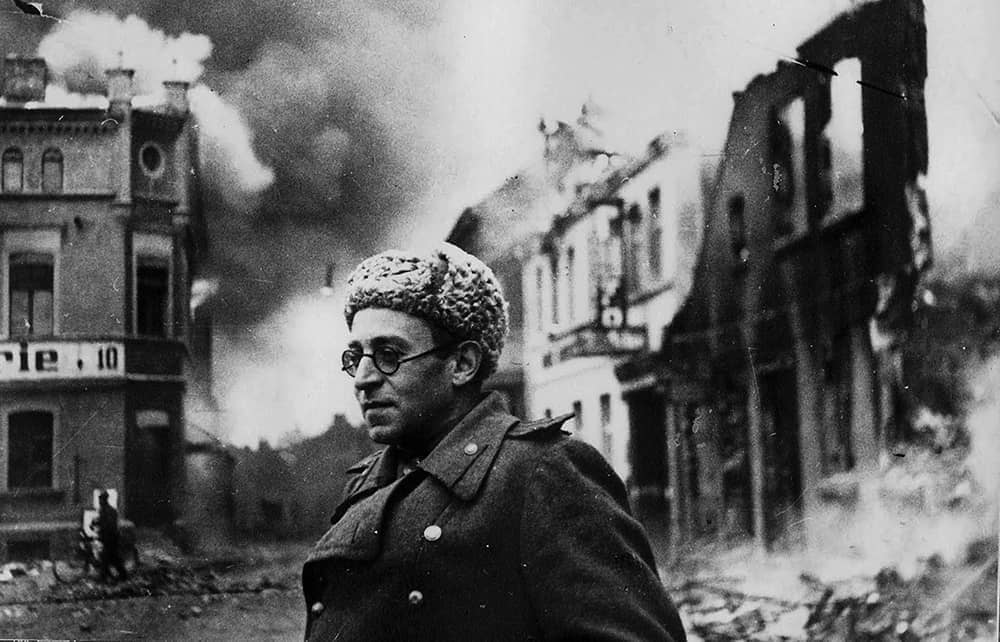On its posthumous publication in 1980, Vasily Grossman’s Life and Fate was widely compared with War and Peace. For all the novel’s many virtues, the comparison was hyperbolic. In one respect, how-ever, Grossman’s was the more remarkable achievement. Whereas Tolstoy wrote about historical events with the benefit of hindsight, Grossman wrote about ones that he had recently endured.
Life and Fate was the third of Grossman’s novels set during the Nazi invasion of the former Soviet Union. The first was The People Immortal, which, like the second, Stalingrad, is now available in an unexpurgated edition, superbly translated by Robert and Elizabeth Chandler. It covers a few days in July 1941 when, after their surprise attack, German forces had encircled entire divisions of the Red Army and ravaged villages in Belorussia and Ukraine.
Grossman, a correspondent for the military newspaper Red Star, witnessed many of the horrors. In April 1942, he was given leave to write a novel about life at the Front, which was published a mere three months later. Unlike the two subsequent novels, The People Immortal was intended primarily as propaganda. With the exception of Colonel Bruchmüller, who deplores the backbiting in Berlin and admires the Russian ‘character’, the Germans are presented as outright monsters, ‘smashing crosses in cemeteries… stepping on the throats of old women… ripping linen shifts from the bodies of breastfeeding mothers’.
Meanwhile, the Soviet people are depicted as defending their motherland in prose that swells like a patriotic chorus by Prokofiev:
And tens of millions of people rose to meet them – from the bright Oka and the broad Volga, from the stern, yellow Kama and the cold, foaming Irtysh, from the steppes of Kazakhstan, from the Donbas and Kerch, from Astrakhan and Voronezh.
Grossman demonstrates how members of every rank of the Red Army find new resources within themselves. Prime among them are Commissar Bogariov and Rifleman Ignatiev. The former, a professor at the Marx-Engels Institute in Moscow, gains respect for the common soldier and regrets that he has ‘spent the last ten years behind books’. The latter, a womanising joker, proves to be a cunning tactician as well as fearless fighter. Not for nothing are the two men united in a bloody embrace at the book’s conclusion.
The Chandlers and the Russian editor, Julia Volhova, have reinstated many passages excised from the original by other editors, censors and Grossman himself, making for a richer, more complex novel. Its greatest strength lies in its authenticity, with several characters modelled on real-life figures and much of the description drawn from personal testimony. Grossman combines a journalist’s eye with a novelist’s empathy, his portrayal of men under fire matching that of Erich Remarque and Stephen Crane.
The publication of this new edition during Russia’s invasion of Ukraine lends particular poignancy to Bogariov’s question: ‘Might this war be the last war of all?’ He wasn’t to know that it would be so brutally answered by his own compatriots.






Comments